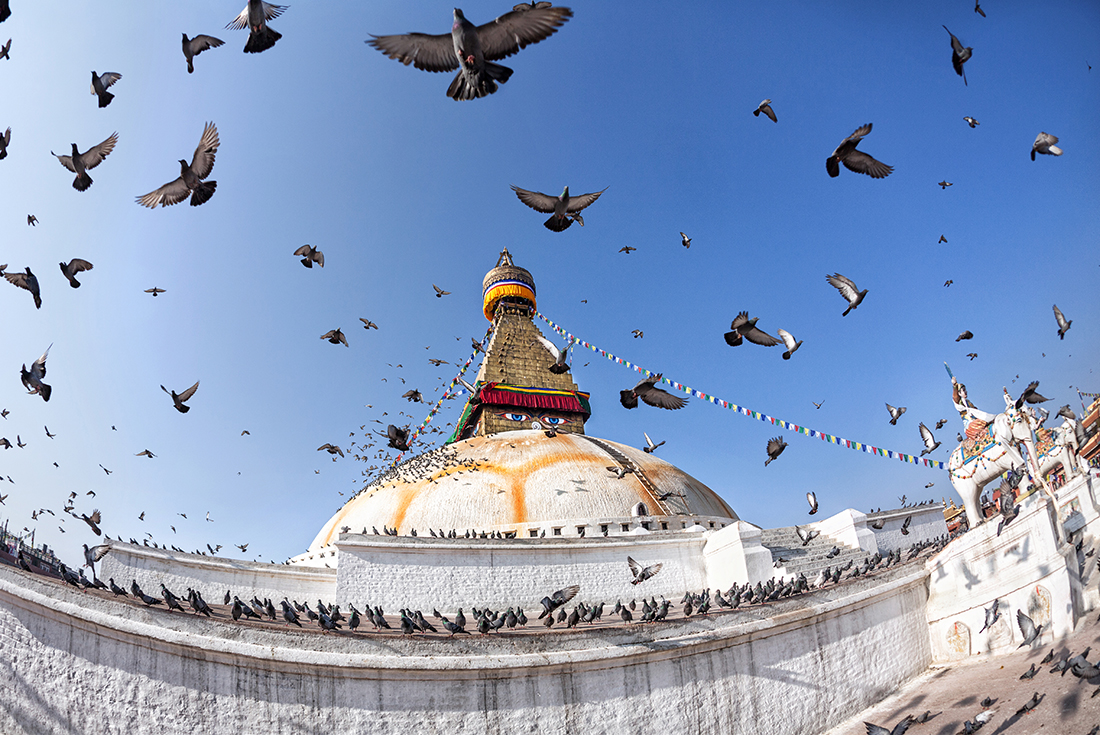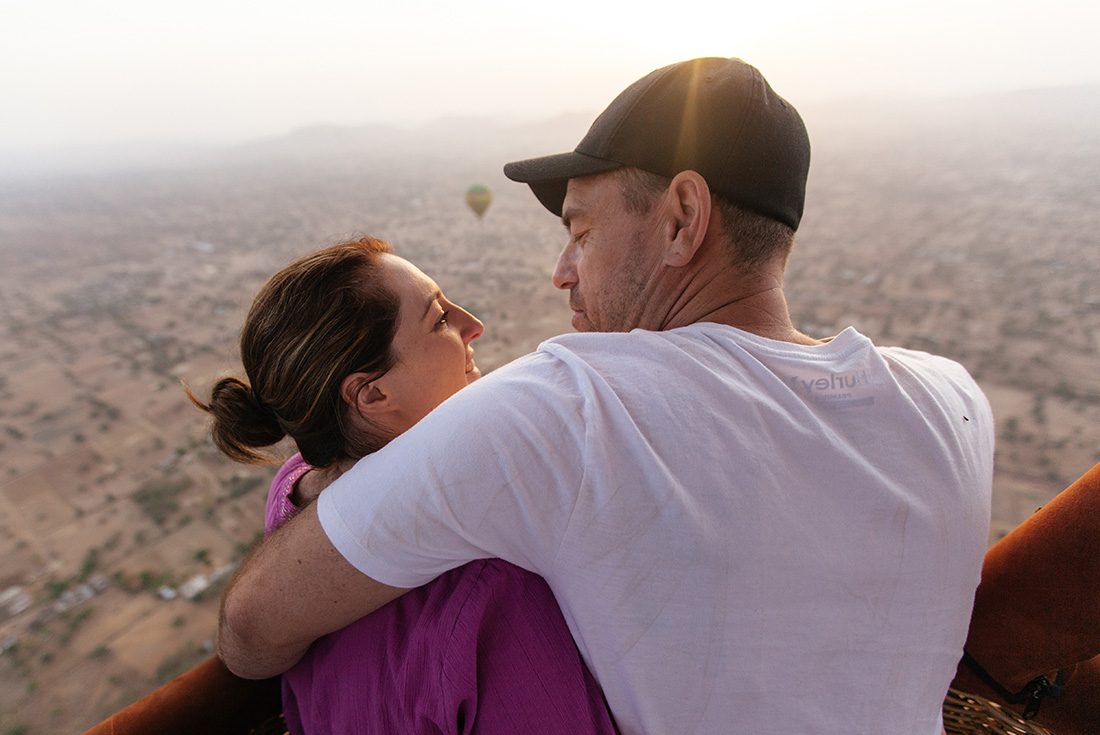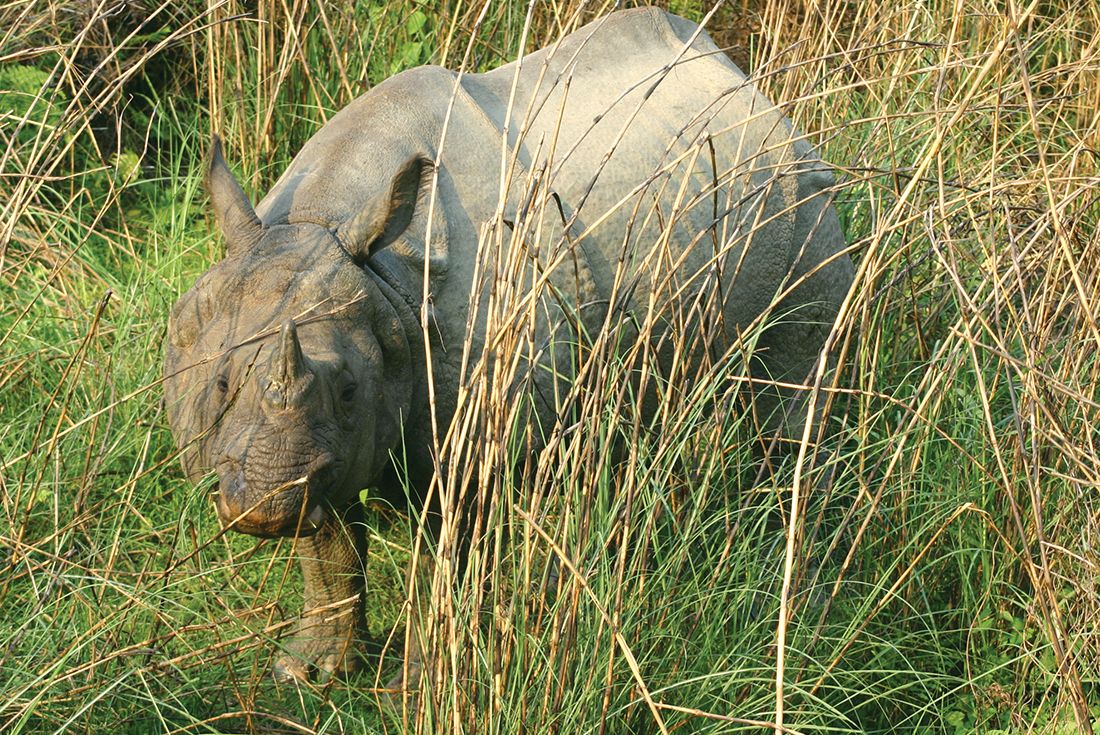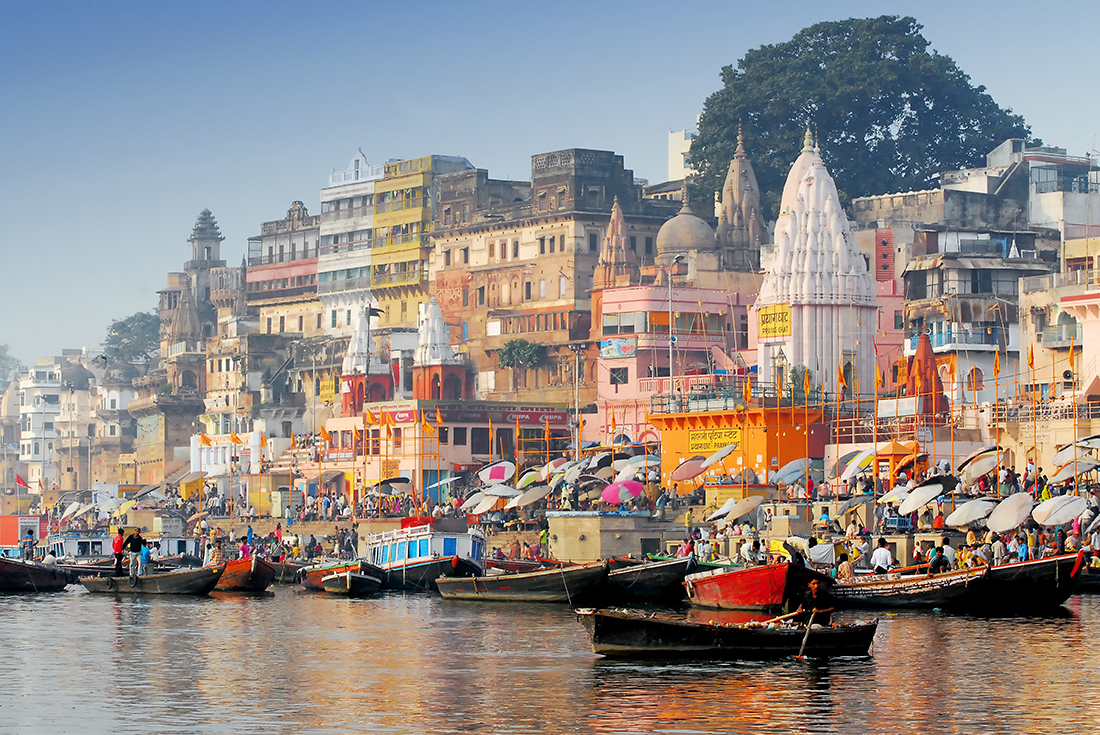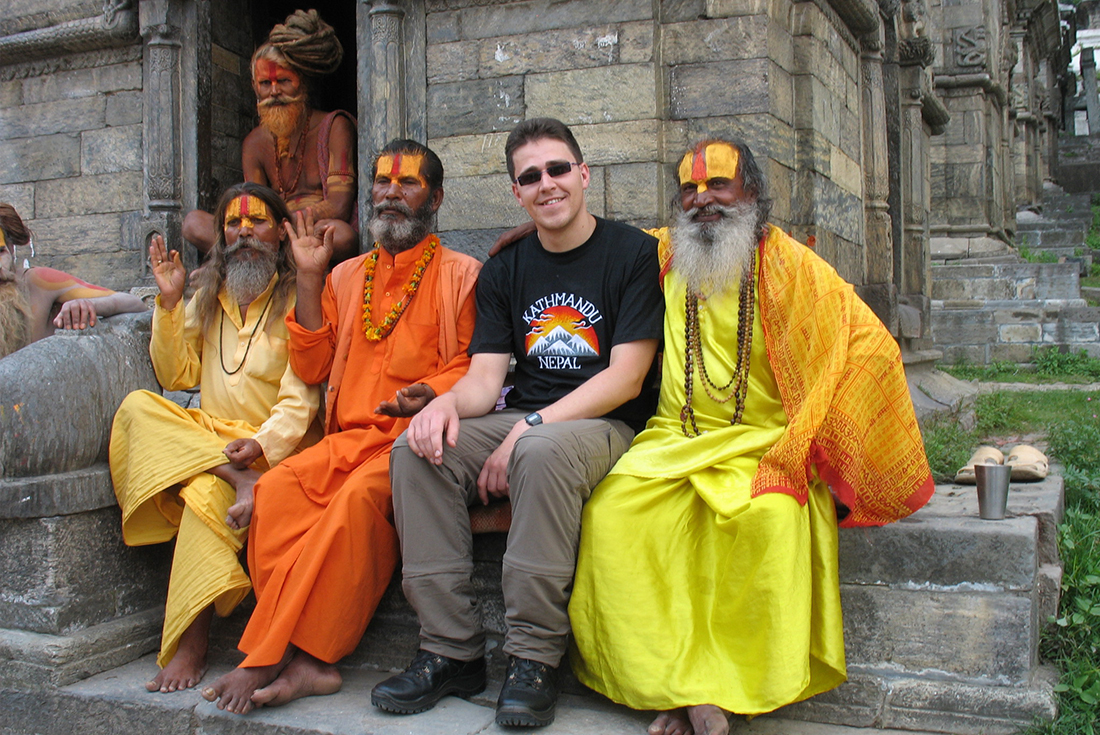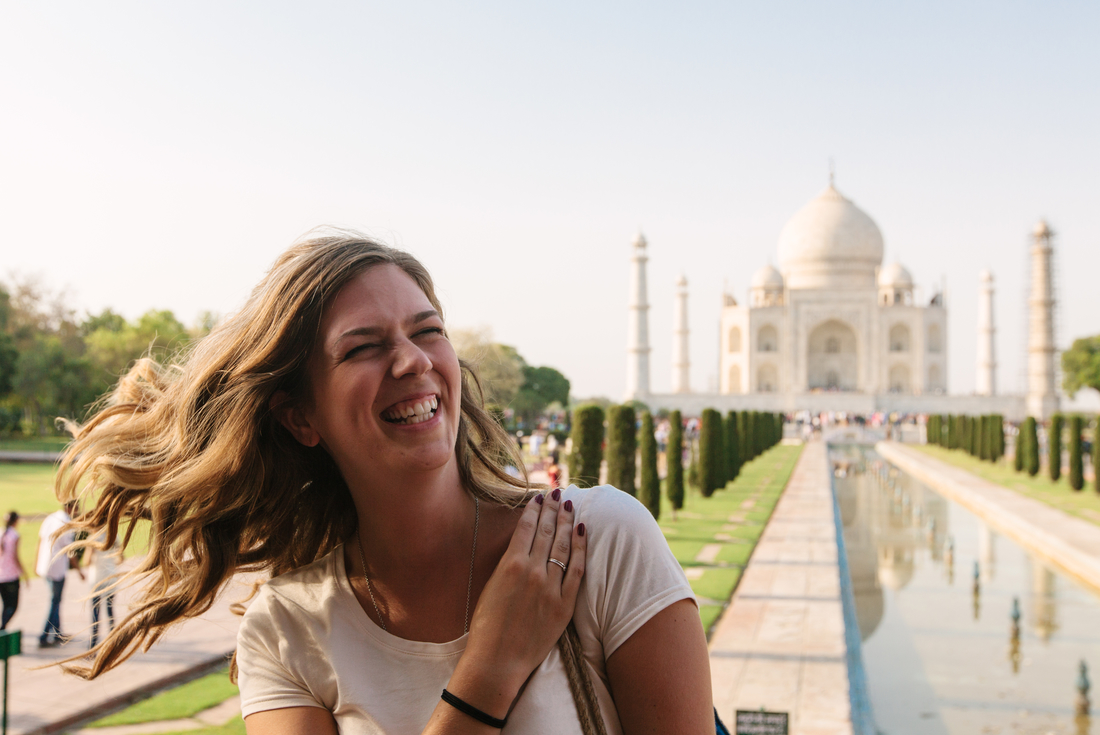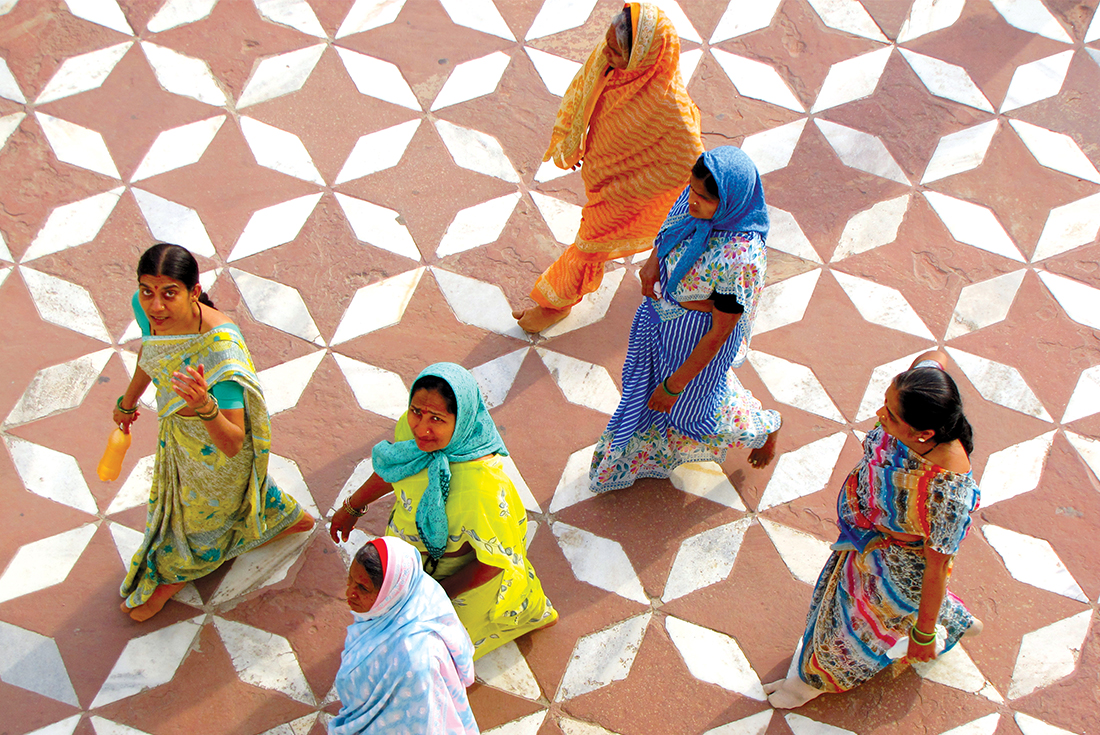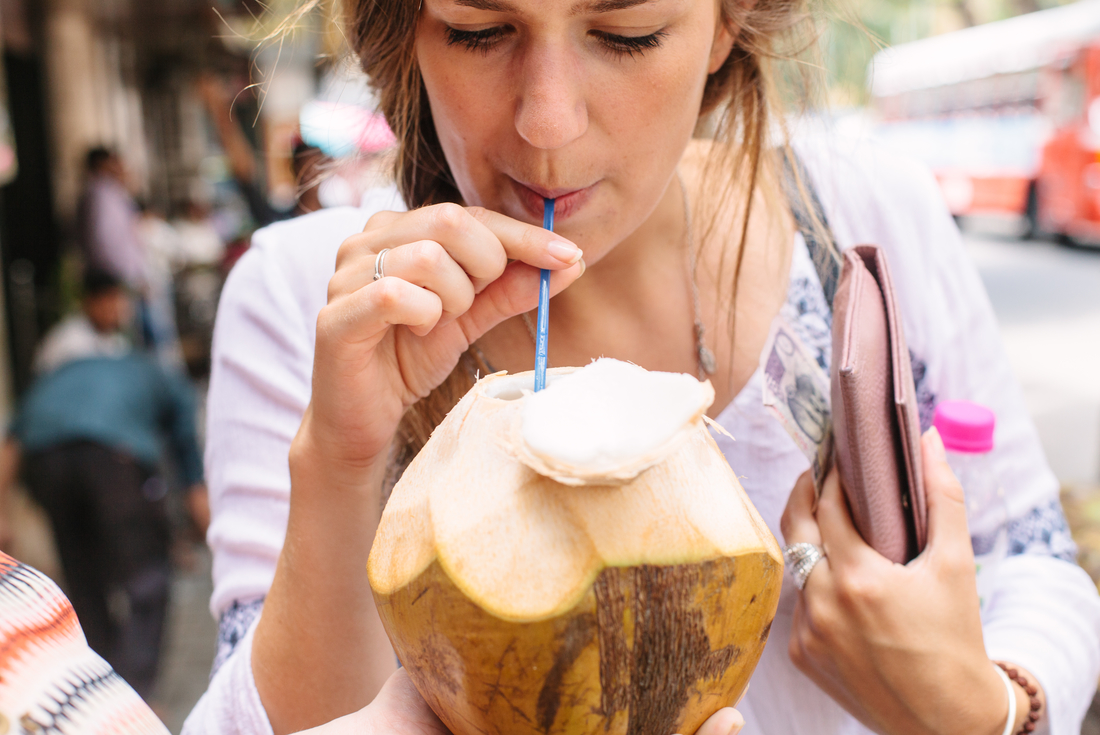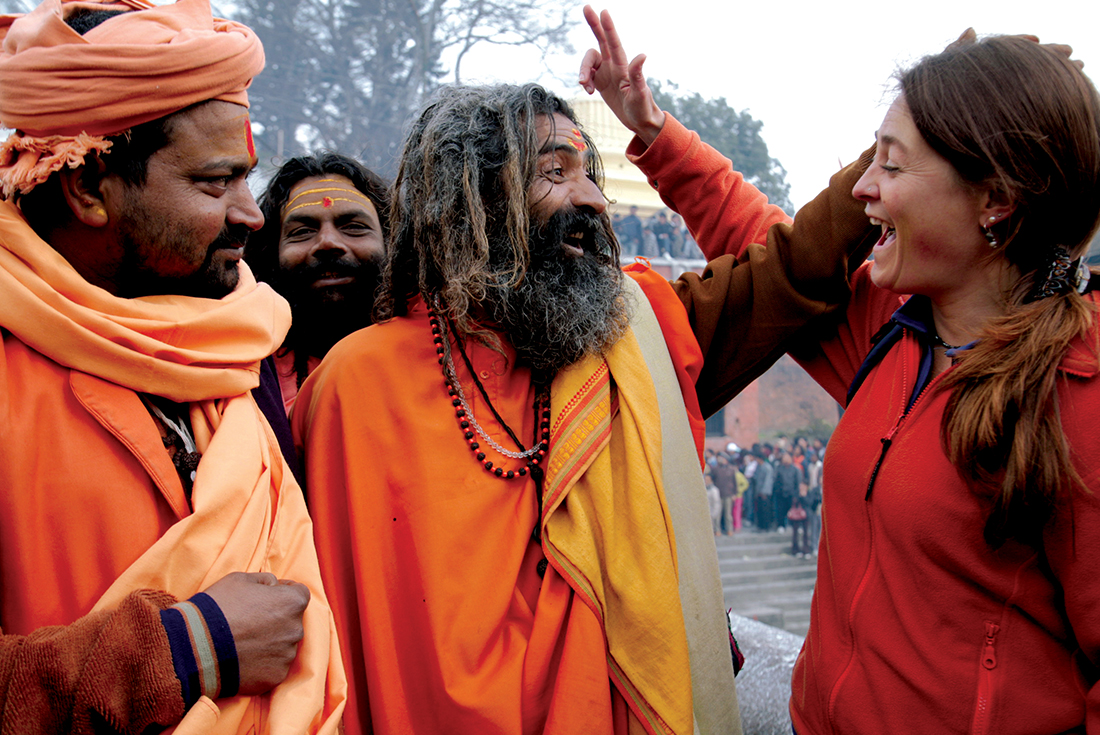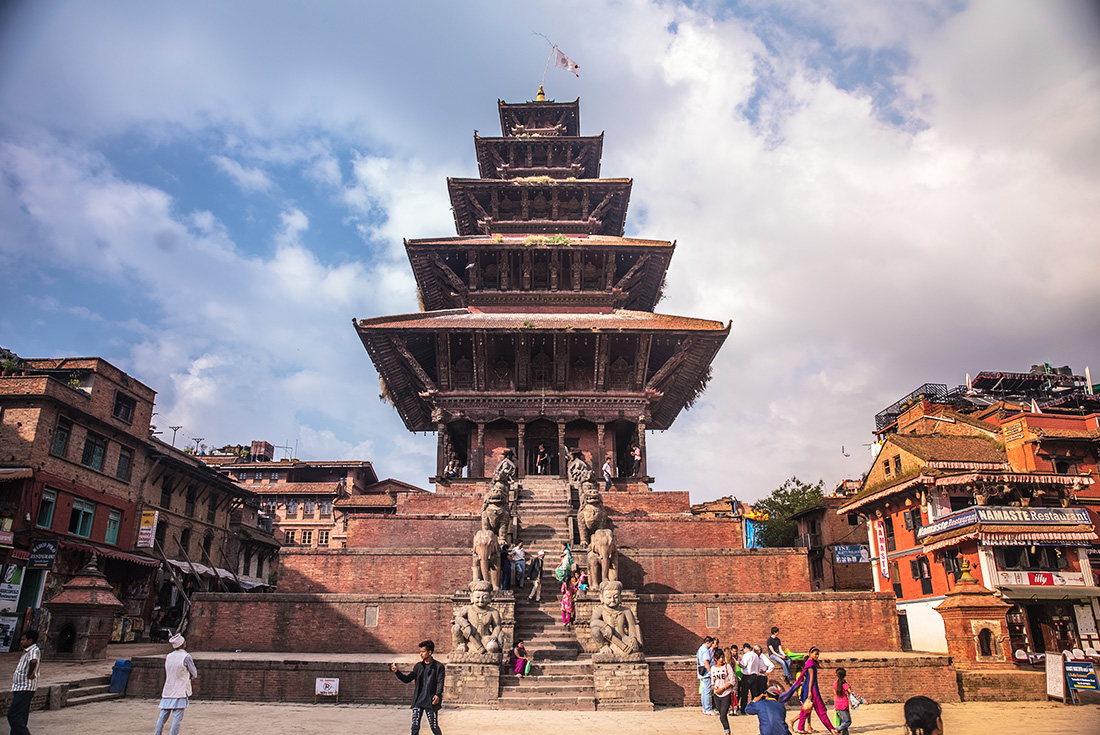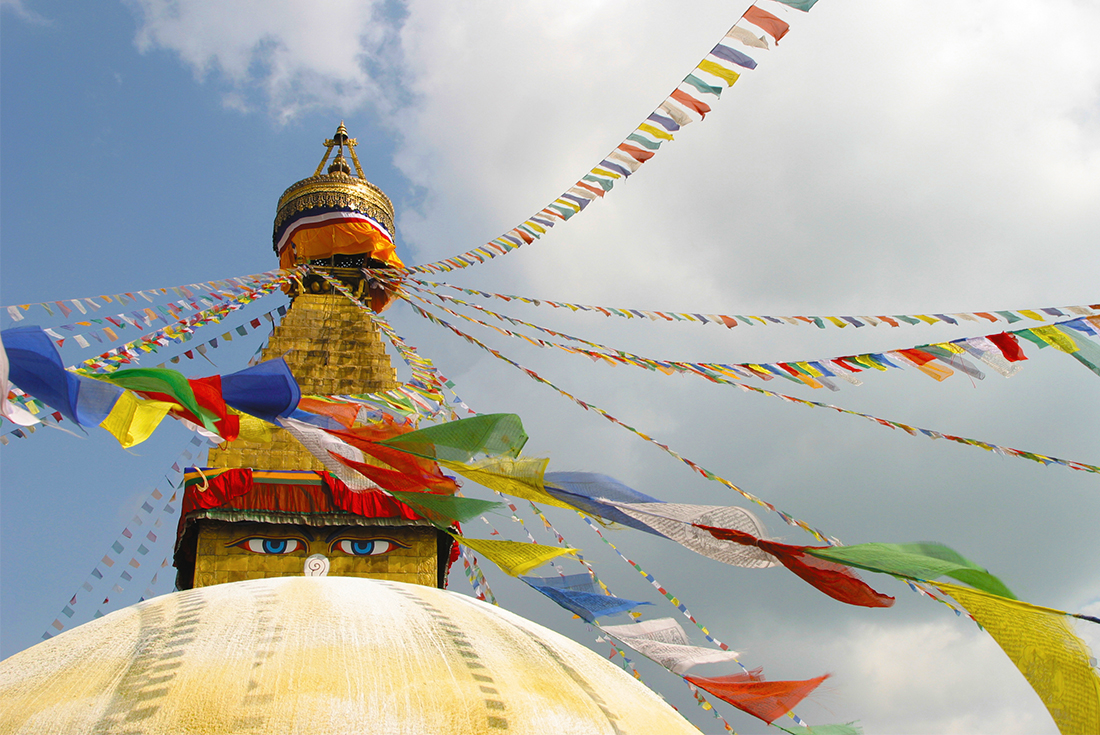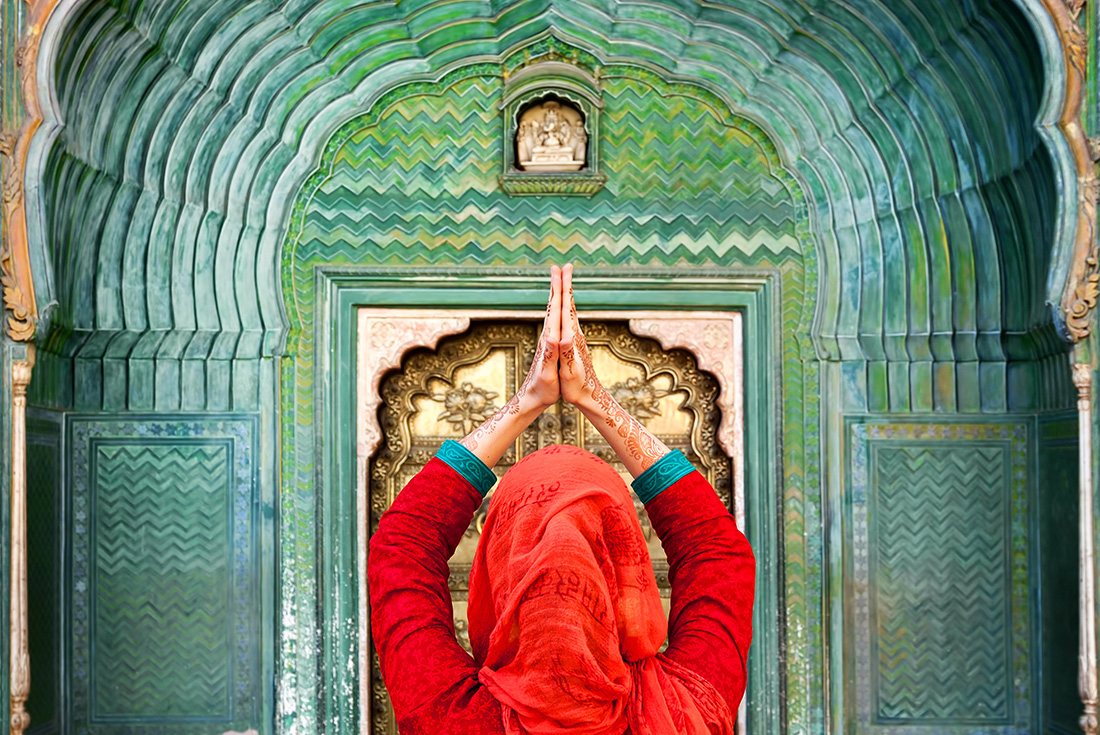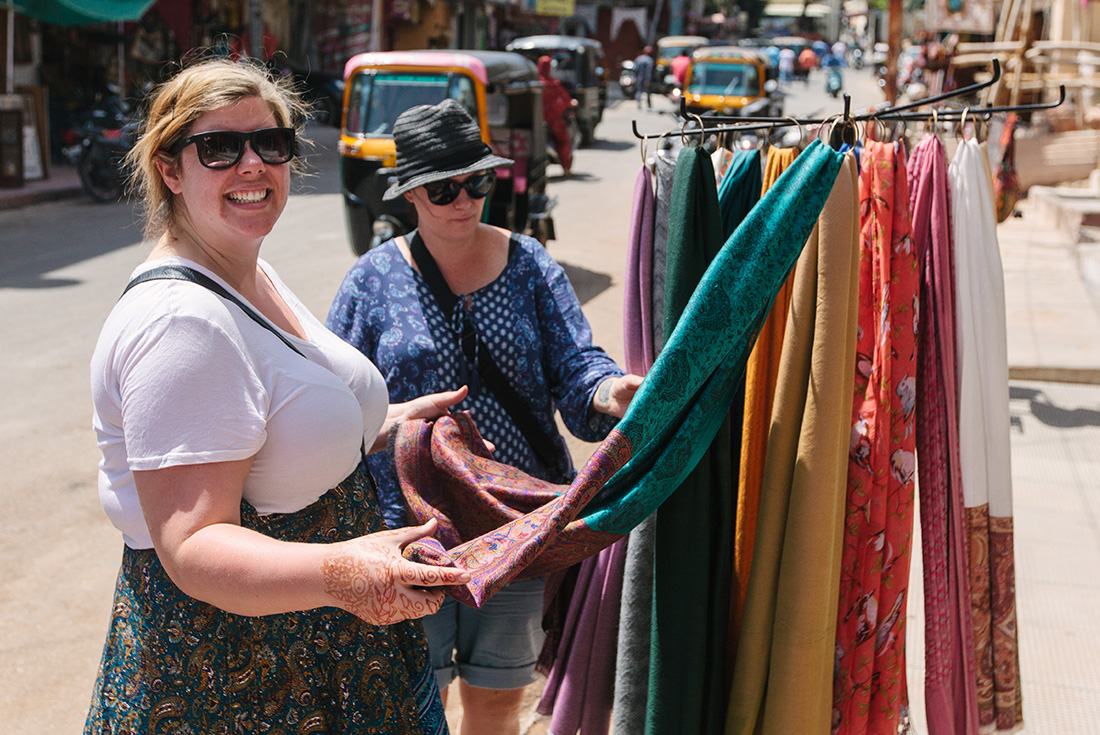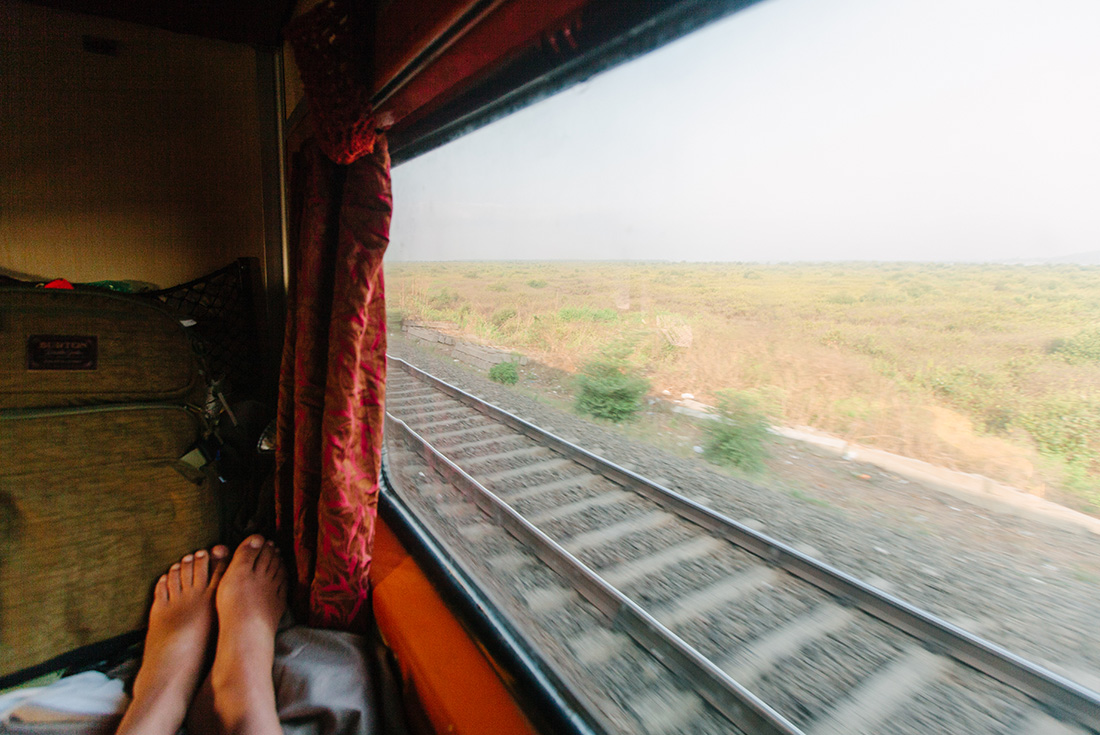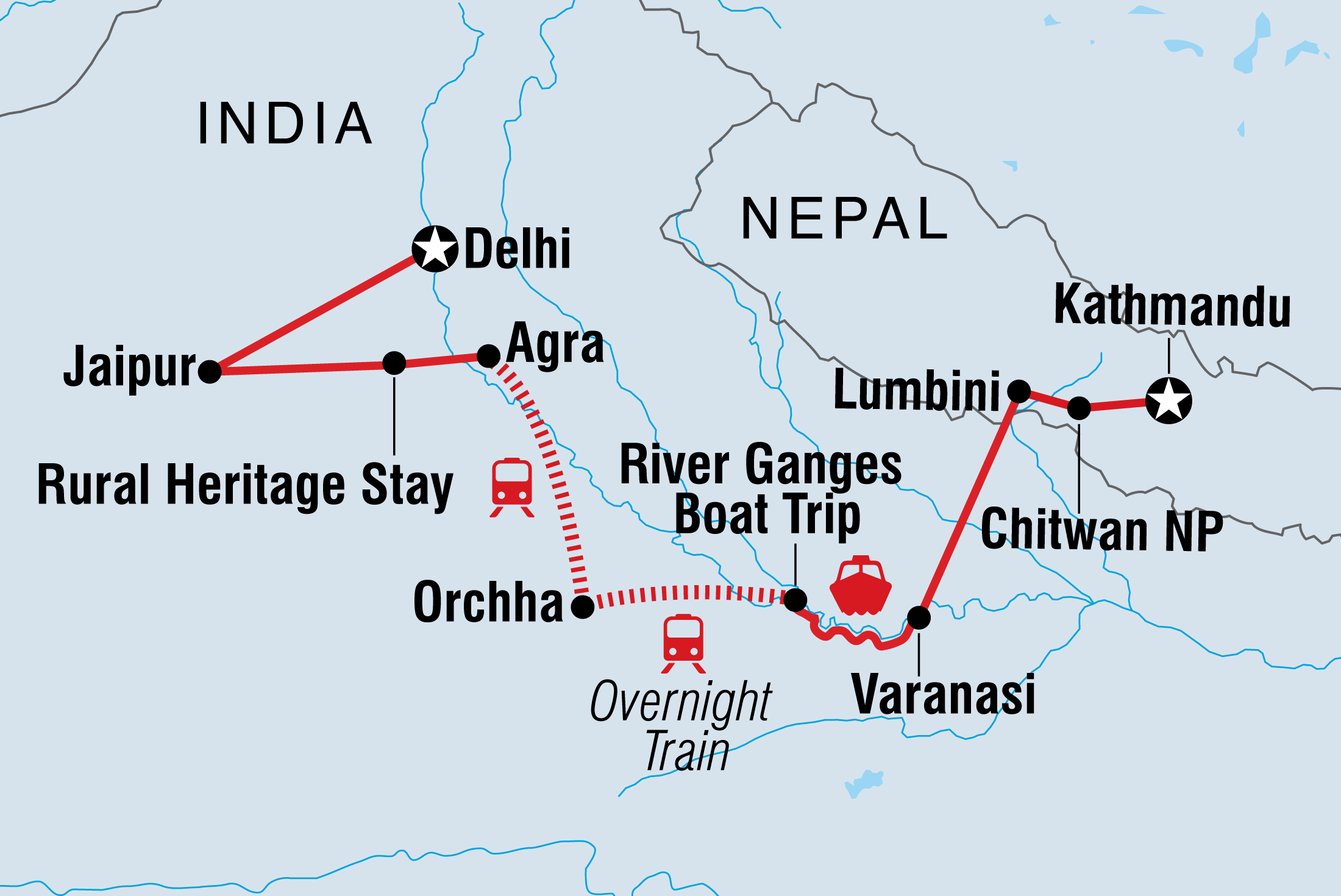SUMMARY
From the sacred River Ganges to the summits of the Himalayas, tour India and Nepal on a trip where adventure and discovery await. From the most exciting places to visit in Delhi to the towering peaks surrounding Kathmandu, discover the spirit, culture, and nature of this fascinating region. Visit the Taj Mahal of Agra, experience the chaos and colour of India's villages, and marvel at the daily pilgrimage to the ghats of Varanasi on the banks of the Ganges. Delve into the history and religion of these two fascinating countries as you enjoy the highlights of India and Nepal.
TOTAL DURATION : 19 Days
GROUP SIZE : MIN 1 MAX 12
TOUR ITINERARY AND DATES
START : Delhi
END : Kathmandu
COUNTRIES VISITED : India,Nepal
Validity : 01 JAN 2025 To 31 DEC 2025
Day :1
Location : Delhi
Namaste! Welcome to India. Your adventure begins with a welcome meeting at 6 pm. If you arrive with hours (or days) to spare, consider striking out on your own, perhaps to visit the World Heritage-listed Humayun's Tomb. A great (and tasty) way to get under the city’s skin in very little time is to book an Urban Adventure like the Delhi City Food Crawl. After the 6 pm meeting, head out for an optional meal with your group at a local restaurant.
Day :2
Location : Delhi
Join your group leader on an excursion through Old Delhi. Ride the city’s metro system, and then hop in a rickshaw to the once water-filled square of Chandni Chowk. Discover the Jama Masjid, Delhi’s oldest mosque, before learning about the history of the Sikh religion at the Sheeshganj Gurudwara.
Day :3
Location : Jaipur
Travel by private vehicle into Rajasthan and on to its capital, Jaipur (approximately 5 - 6 hours). A friendly, busy city crammed with palaces and bazaars full of jewellery, textiles and folk arts, Jaipur is a favourite for many travellers. Our suggestions are to stop by the Hawa Mahal (Palace of the Winds), then head over to Jaipur's Royal City Palace and explore its extravagant rooms and apartments. Later, discover one of the five astronomical observatories built by Maharaja Jai Singh, the founder of Jaipur.
Day :4
Location : Jaipur
Choose to take an early morning hot air balloon experience, often a highlight of visiting Jaipur. Ballooning can be done over Jaipur on the morning of day four between September and June. Mid-afternoon visit the Amber Fort. Set on a hilltop overlooking Maota Lake, the fort is an authentic example of Rajput architecture and the Sheesh Mahal (Hall of Mirrors) is one of its more spectacular buildings.
Day :5
Location : Karauli
Leave the ‘Pink City’ of Jaipur behind and drive to the village of Suroth Mahal in Karauli (approximately 5-6 hours). This delightful town was founded in 1348 and is packed with rural ambiance and traditional temples. Take a guided walk around the Old Quarter, interacting with friendly locals and learning about rural Indian life off the tourist trail. Be sure to visit the eclectic market stalls along the way and sample some seasonal local sweets made from Indian ingredients, including petha (pumpkin), jaggery (organic sugar), peanut brittle, and gazak (sesame seeds). Stay in a restored heritage property tonight where dinner is included.
Day :6
Location : Agra
After arriving into the Agra today by one of India's express air-conditioned trains (approximately 2.5 hours), you’ll head straight to the most recognisable sight in India. It doesn’t matter who you are, the Taj Mahal will leave you awe-struck with the morning light shimmering off its white marble surface. Best known as a monument to love and loss, the 17th century Taj is a beautiful example of Mughal architecture, surrounded by trimmed English gardens. The highlights keep coming as you take a motorised rickshaw tour, a truly fun and Intrepid way to see the monuments of Agra. Later, you'll also visit Akbar's Mausoleum – a beautiful sandstone and marble tomb built for the greatest of the Mughal emperors.
Day :7
Location : Agra – Orchha
Agra is also home to one of the finest looking forts in India. This morning you’ll enter the dark red sandstone stronghold of Agra Fort – part fortress, part palace and part prison – and search through throne rooms and tiny but incredibly decorated mosques. Later, travel by air-conditioned train from Agra to Jhansi (approximately 3 hours). Upon arrival in Jhansi, travel through traditional rural Indian landscapes to reach the beautiful town of Orchha on the banks of the Betwa River (approximately 45 minutes). Here you’ll have the opportunity to uncover a very different side of India. Initially a hunting area, Orchha has changed very little over the centuries. Despite its small size, it is filled with many beautiful temples and palaces built here in the 16th century by the ruling Bundelas clan. This evening, witness the Ram Raja Temple puja (prayer) ceremony at the shrine at the heart of the city. Stay in a restored heritage property tonight.
Day :8
Location : Orchha
Today you'll visit the stunning Orchha Palace, built by Bir Sing Deo for his friend Jehangir, the great Mughal ruler. Take note of the grand Iwans (domes) that were built large enough to allow the movement of war elephants. You’ll also make a stop at Taragram - a paper making factory that enables local tribal women to work outside the realm usually afforded to them. The paper is crafted from wood pulp and recycled clothing.
Day :9
Location : Orchha - Overnight train
Today you'll get to soak up more of the unique atmosphere of Orchha, and excitingly you'll get to soak up the local flavours too. Learn about the local cuisine, its ingredients, and how it's prepared, in a cooking demonstration with our local friends. In not too long, you’ll get to taste the unforgettable results. This evening you’ll return to Jhansi and board an overnight train to Prayagraj (Allahabad) (approximately 10 hours) – the starting point for your Ganges boat journey.
Day :10
Location : River Ganges
Arrive in Allahabad and transfer to the Ganges (approximately 2 hours) by small riverboats for a cruise down the river. You'll experience the sacred River Ganges, the lifeblood of millions of Indian people, with a boat cruise through the heart of rural India. A support crew will be on hand as you cruise down this iconic waterway, passing village communities and viewing river life as it goes on around you. The boats are equipped with life jackets, the deck has mattresses and cushions to relax on, and it’s all covered with a cloth roof for sun protection. Arrive at your campsite and relax riverside, read a book or play some cricket. Watch the sun go down and eat a delicious vegetarian meal prepared by the boatmen.
Day :11
Location : Varanasi
Leaving your boats at Chunar, transfer by private vehicle to Varanasi (approximately 2 hours). This is one of holiest cities around; the ultimate destination for Hindu pilgrims who travel from far and wide to experience this spiritual city. Overflowing with temples, shrines and devotees, there’s no doubt it’s one of the most amazing cities. Set off on a walking tour of the oldest part of the city, bustling with tourists and priests, and see different rituals being performed. Wander through the Old City with its maze of narrow alleyways packed full of small shops and stalls, and lumbering cows. This evening, soak up the unique magical atmosphere of a candle flower ceremony as the sun sets.
Day :12
Location : Varanasi
Today starts early with a sunrise boat ride on the Ganges, where you can watch the light gradually illuminate the many ghats and temples along the river as you pass. The rest of the day is free for you to use as you like. There’s an option to take a trip to nearby Sarnath – one of the four main Buddhist pilgrimage destinations. The site is where Buddha preached his message of the path to enlightenment and features a number of stupas and museums to explore. Or perhaps visit Ram Nagar Fort – a crumbling 17th-century fort and palace on the eastern bank of the Ganges, that’s the ancestral home of the Maharaja of Banaras. Alternatively, the day can be spent exploring the laneways and alleys behind the ghats, picking up some examples of the excellent local silk industry, or perfecting yoga in this most chakra-balancing of places.
Day :13
Location : India/Nepal border crossing – Lumbini
Today, wave goodbye to India and say namaste to Nepal, as you cross the border at Gorakhpur. Though there’s always something to look at out the windows, it’s a good idea to have some other entertainment on hand for the long day of travelling ahead (approximately 8-10 hours including stops). For groups of less than five, you will travel by car and for bigger groups by bus. On entering Nepal, take a private bus to your hotel in Lumbini (approximately 1 hour). This is no ordinary border town, but the birthplace of Gautama Buddha, the founder of Buddhism, and one of his four holy places of pilgrimage. It's said in the Parinibbana Sutta that Buddha identified the sites as those of his birth, enlightenment, first discourse, and death. You’ll visit the beautiful Ashoka Pillars and hop on cycle rickshaws to the Maya Devi Temple, the actual site where Lord Buddha is thought to have been born.
Day :14
Location : Amaltari Community
Continue your journey by private vehicle through the Terai to the Amaltari Madhyavarti village homestay – your home for the night. A well-known Indigenous group in Nepal, the Tharu community who live here are known for their distinctive culture and lifestyle. When you arrive, have lunch in the community with your group, get to know some of the locals and then enjoy some free time to freshen up. After, you’ll head out on a 4WD drive to the lake to enjoy some afternoon tea. Learn about village life in the community over dinner tonight and relish in a homecooked, traditional meal made by the locals.
Day :15
Location : Chitwan National Park
This morning, go on a village walk, guided by a member of the Tharu community around the village. See the architecture and structure of the Indigenous homes around the village by daylight, as well as the local farms, where locals cultivate their crops to sustain their community’s livelihood and economy. Connect with the daily way of life here through cultural immersion and storytelling and learn about their customs and values from the locals themselves. After, say goodbye to your hosts, and head for your lodge in Chitwan National Park via Twenty Thousand Lakes (Bis Hajaar Tal) via private vehicle (2 hours). Nepal’s second-largest natural wetland, this beautiful reserve area is a maze of small lakes that teems with wildlife. Home to numerous crocodiles, this is one of the park’s best areas for birdwatching, with hundreds of species using it as a migratory route stop. If you’re lucky, you might spot an Indian rhino.
Day :16
Location : Chitwan National Park
After breakfast, take a walk to the Rapti River from where you’ll be taken on a boat/jeep safari through the national park. Enjoy some brilliantly-coloured-bird watching along the Rapti River and a picnic lunch. Keep your eyes peeled for gharials – this fish-eating crocodile has long been hunted for the supposed aphrodisiac qualities of its snout. Learn more about them when you drop by the crocodile breeding centre. Once back at your accommodation, there’ll be time to relax or to take part in a number of optional activities offered by the park. Tonight, you’ll be treated to a cultural performance by the locals.
Day :17
Location : Kathmandu
Today you'll journey by bus from Chitwan to Nepal's capital, Kathmandu (approximately 6 hours). This is a ride that takes in all the sights that define Nepal – iridescent rice terraces, deep gorges, fast-flowing rivers, and looming mountains. Kathmandu is a mixture of ancient architecture and modern development and, with its rich artistic and cultural heritage, it remains the legendary destination it has been for decades. Crowded markets and bazaars are the centre of Nepali life and the narrow streets are home to holy men, monks, bicycles, incense, goats, and sacred cows. Perhaps head out into Durbar Square, in front of the old royal palace and home to numerous beautiful temples and browse the stalls of merchant's wares.
Day :18
Location : Kathmandu
Today you’ll head out to the ancient Swayambhunath Temple, known to tourists as the Monkey Temple and Kathmandu's most important Buddhist shrine. The sleepy, all-seeing Buddha eyes that stare out from the top have become the quintessential symbol of Nepal. You’ll also join the pilgrims at Bodhnath Stupa – the largest stupa in Nepal and the holiest Tibetan Buddhist temple outside Tibet. It's the centre of Tibetan culture in Kathmandu, rich in Buddhist symbolism, and you can observe Buddhist monks in prayer in the monasteries surrounding the stupa. You will also visit Pashupatinath – the most famous Hindu temple in the country – located on the banks of the holy Bagmati River. Here you will see Hindu holy men (sadhus) meditating and pilgrims bathing. There are also a number of optional activities to take advantage of if you have the time, including our Urban Adventures. Maybe take-off on a flight from Kathmandu airport to see some spectacular mountain scenery. Those who don't have the opportunity to go trekking can get panoramic views of the Himalayas in just an hour.
Day :19
Location : Kathmandu
Your adventure through Nepal and India ends today and you're free to leave the accommodation at any time.
Reference : IT

